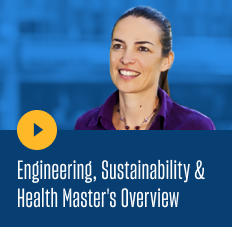Do you feel like you’re ready for a career change? Or a calling to another profession other than engineering? Rest assured that’s not unusual — in fact, you’re in the majority. Many of us will move between different jobs, careers and even industries over the course of a lifetime. That’s reflected in a 2021 U.S. Department of Labor survey which found that, by the age of 54, an average professional from the Baby Boomer generation has held an average of 12 jobs.
If that number sounds high, consider that every generation experiences a massive disruption in the job market due to new technologies. Recent professional experiences have been complicated by other disruptions such as the COVID-19 pandemic and the subsequent work-life evaluation that followed the global lockdown.
That moment of introspection has continued to echo over the past few years, as Pew Research found many workers in the U.S. have left their jobs due to low pay, lack of advancement, lack of respect and lack of flexible work hours. Other engineers have left their jobs because of a lack of advancement opportunities, because they’re feeling burnt out or are looking to make a more meaningful difference in the world. So, whether you consider yourself to be part of a “Great Re-Evaluation” of values, you’re not alone in longing for a change in your career path.
So, what’s your path forward? That largely depends on what you’re looking for. Instead of thinking of what you bring to a company or a field, consider instead looking for positions that align with your values or meet the needs of your community.
Here’s how you can prepare for what may be the next step in your career.
Determine What Kind of Career Change You Want
Take a moment and start by asking yourself these questions. You want to be as honest as possible, even if — especially if — the answer goes against what you’ve done to this point. Honest answers can help you to evaluate your current situation and clarify where you want to be:
- What job would you do for free?
- What would you be doing for work if money was not a concern?
- What are you skilled at?
- What do you do well?
- What are you passionate about working on?
- What about yourself do you want to improve on?
- What do you have to offer?
- What activities do you love doing?
- What kind of impact would you like your work to make?
- What do you want to be doing in 10 years?
Want to make this more of an exercise to put more consideration into your answer? Write the questions and your answers down on a piece of paper or even in a journal.
Depending on your answers, you may have a better idea about where your dissatisfaction lies. Is it your field of work that’s the problem? Is it more the job position you’re currently in? Or are there specific elements of your work that are causing you distress? Dig a little deeper by asking yourself these more direct questions:
- Do you feel stagnated in your current career path?
- If some important things changed, but you were still in the same position, would you be happy?
- What don’t you like about your current working conditions / environment?
- Have you fallen out of love with the practice of engineering?
- Do you feel like you don’t want to be an engineer anymore?
Your answers will help you decide if your discontent lies with the position or if you’re ready for a new career path.
Potential Career Changes for Engineers
Economic uncertainty, lack of direction, being tied to a certain geographic area — all are common reasons for staying in a job that you’re not happy with. However, the “sunk cost” fallacy is also a psychological anchor that keeps us stuck in positions we find unfulling:
- “I’ve spent tens of thousands of dollars on my education and career, I can’t let that be for nothing.”
- “I’ve had years to build up my professional career, I can’t risk starting over.”
- “Just a few more years and I’ll be able to do what I really want.”
Understand that there’s nothing that’s forcing you to stay with your position. Just because your degree is in engineering doesn’t mean your job title needs to be “Engineer.” Someone with your education and experience brings a wealth of transferable skills and knowledge that can be applied to a variety of careers.
- Do you enjoy writing code? Then perhaps you can find more happiness and success as a software developer.
- Do you like to write and communicate ideas? Then you may be more suited to working as a technical writer.
- Enjoy crunching numbers? You could be a data scientist or quantitative analyst.
You can find success in any number of related fields, such as business leadership, teaching or training, mathematics, education or other science fields. You may also consider an alternative career based on your personal values rather than just your professional skills and experience. Think about what matters to you, and whether you’d be happier realizing those values.
To help you along, here are some examples of common values, along with possible career paths to match.
Value: Problem Solving — You love to approach problems from different angles and find elegant solutions. You know that data provides the insights you need to make informed decisions to accomplish goals. You enjoy working with others to collaborate on and realize solutions.
Sample Career Fields: Supply Chain Management, Computer Science, Statistics, Mathematics, Project Management
Applicable Engineering Skills: Critical thinking, scientific methodology, mathematics, collecting and utilizing data
Possible job titles, salary ranges* and requirements:
- Project Manager
$63,366 – $80,578
Experience as a project manager, background in management, budgeting or analysis.
- Data Analyst
$73,909 – $92,384
Bachelor’s degree or higher in statistics or analytics or relevant experience.
- Logistics Analyst
$53,774 – $66,847
Bachelor’s degree or higher in a related field.
- Operations Manager
$96,495 – $124,992
5 years field experience and 1-3 years of supervisory experience.
Value: Environmental Sustainability — You feel passionate about environmental matters and are determined to take action to ensure a better future for our planet and for ourselves. Whether you’re working to mitigate the effects of climate change, to develop sustainable sources of energy or to enact environmental justice for at-risk communities, you’re looking to apply your skills and talent toward making substantive change.
Sample Career Fields: Environmental Engineering, Urban Planning, Water and Sanitation, Ecology
Applicable Engineering Skills: Creativity, critical thinking, scientific methodology, collecting and utilizing data, presentation skills
Possible job titles, salary ranges* and requirements:
- Environmental Consultant
$63,787 – $84,122
Bachelor’s degree or higher in related areas of environmental science, ecology, biology or chemistry.
$79,745 – $99,286
Bachelor’s degree or higher in area of speciality and 2-4 years of related experience.
- Civil Engineer
$67,300 – $178,480
Bachelor’s degree or higher in civil engineering, strong background in mathematics or design.
- Hydrologist
$86,077 – $112,518
Bachelor’s degree or higher in a related field and 2-5 years of related experience.
Value: Equitable Healthcare — You believe that every person deserves equal access to clean water, food and affordable health care. Whether you’re designing new systems for delivering health care or are active on the frontlines of treating those who need it most, you’re fighting to give everyone access to a healthy, dignified life.
Sample Career Fields: Health Equity, Clinical Engineering, Biomedicine, Medicine
Applicable Engineering Skills: Research, computer science, collecting and utilizing data, process management
Possible job titles, salary ranges* and requirements:
- Healthcare Systems Engineer
$81,780 – $101,995
Bachelor’s degree or higher in related areas and 3-5 years experience as a systems administrator.
- Health Information Analyst
$74,117 – $97,193
Bachelor’s degree or higher in information systems or a related field and 1-2 years of healthcare experience.
- Healthcare Data Scientist
$127,096 – $155,160
Master’s degree or higher in data science, health or IT and 2-3 years of experience in healthcare.
- Health and Safety Manager
$95,560 – $132,984
Bachelor’s degree or higher in environmental safety, occupational safety or related field and 1-3 years of supervisory experience.
Value: Social Justice — You are passionate about helping communities and ensuring that our systems promote fairness, equity and justice. You refuse to sit by while people are marginalized and discriminated against due to their race, religion, gender, culture or sexual orientation. You know that more work needs to be done to combat discrimination in all its forms.
Sample Career Fields: Social Work, Law, Community Development, Advocacy, Urban Development
Applicable Engineering Skills: Research, communication, process management, presentation skills, critical thinking
Possible job titles, salary ranges* and requirements:
- Community Service Manager
$54,146 – $67,389
Bachelor’s degree or higher in a social science field or related area and 2-4 years of supervisory experience.
- Clinical Social Worker
$71,045 – $85,770
Bachelor’s degree or higher in social work or a related field and a state license to practice social work.
- Community Developer
$37,241 – $44,888
Bachelor’s degree or higher in social science or related field and 2-4 years of experience with community projects.
- Grant Writer
$46,625 – $58,408
Bachelor’s degree or higher and 1-3 years of experience in grant writing.
Join Us In the Fight Against Climate Change, Rising Inequity and Social Injustice — Download Meeting the Planet’s Most Urgent Challenges: Transforming Systems to Support Justice and Sustainability
Value: Education — You value learning in all its forms and would like to share your knowledge and experience with others. You know that the next generation of professionals will be responsible for addressing some of our most pressing issues, and you want to help prepare today’s students for what’s to come. You enjoy collaborating with others and contributing to the larger educational community.
Sample Career Fields: Social Work, Law, Community Development, Advocacy, Urban Development
Applicable Engineering Skills: Research, communication, presentation skills, critical thinking, creativity
Possible job titles, salary ranges* and requirements:
- Professor (Engineering)
$83,992 – $166,330
PhD or terminal degree in related field, published work and 2-4 years of teaching or management experience.
- Instructional Designer
$69,990 – $85,890
Bachelor’s degree or higher in education or a related field.
- Educational Technologist
$55,800 – $75,480
Bachelor’s degree or higher in a related field and 2-4 years of experience with IT and/or educational fields.
- Instructional Technologist
$43,511 – $78,764
Bachelor’s degree or higher in a related field and 2-3 years of experience with instructional design technology.
*According to Salary.com
Of course, all of these values and positions are just a small sample of possibilities. If you have another interest or talent that you’d like to pursue, it may open up even more possible career paths. Whether you’re looking to leave the engineering discipline entirely or are looking for another way to apply your skills, the real measure of your success will be determined by the effort and passion you put into it.
Read more about possible careers in this field in our blog post: Top 8 Social Justice Careers.
How to Prepare for a Career Change After Engineering
The most important skill you can take away from your engineering education is to “learn how to learn.” That way, you’re capable of being flexible and adjustable in the work you do. Even if you choose to stay an engineer, there will be new processes and new technologies that you’ll need to learn. If you’re determined to switch out of engineering, here are some key tips for how to prepare for any career change:
- Identify the areas of work or study that you are most passionate about
- Research specific jobs of relevance and see what the general requirements are
- Identify your transferable skills and where you may need to upskill or reskill
- Identify your gaps in required experience, education or certifications
- Get trained, educated or accredited to fill those gaps
- Tailor your resume and cover letter to explain your career change
One of the best ways you can explore your options is to work with professionals from other disciplines. They can provide you with a fresh perspective on your passions and will help to grow your network of contacts. If you’re thinking of employing your skills to contribute to the fields of environmental justice, social justice or equitable healthcare, then consider the University of San Diego’s Master of Science in Engineering for Sustainability and Health (MESH) as preparation for your new career.
As a transdisciplinary program, our focus is on bringing together professionals from across disciplines to study complex systems of engineering, health, human development, ecology and justice. USD MESH students collaborate and network to share knowledge, present new ways of thinking and challenge existing approaches to equity and sustainability. As an online program, the curriculum structure is accessible for working professionals who are ready to work toward a new career path.
If you believe that your values match ours, contact us to learn more.




